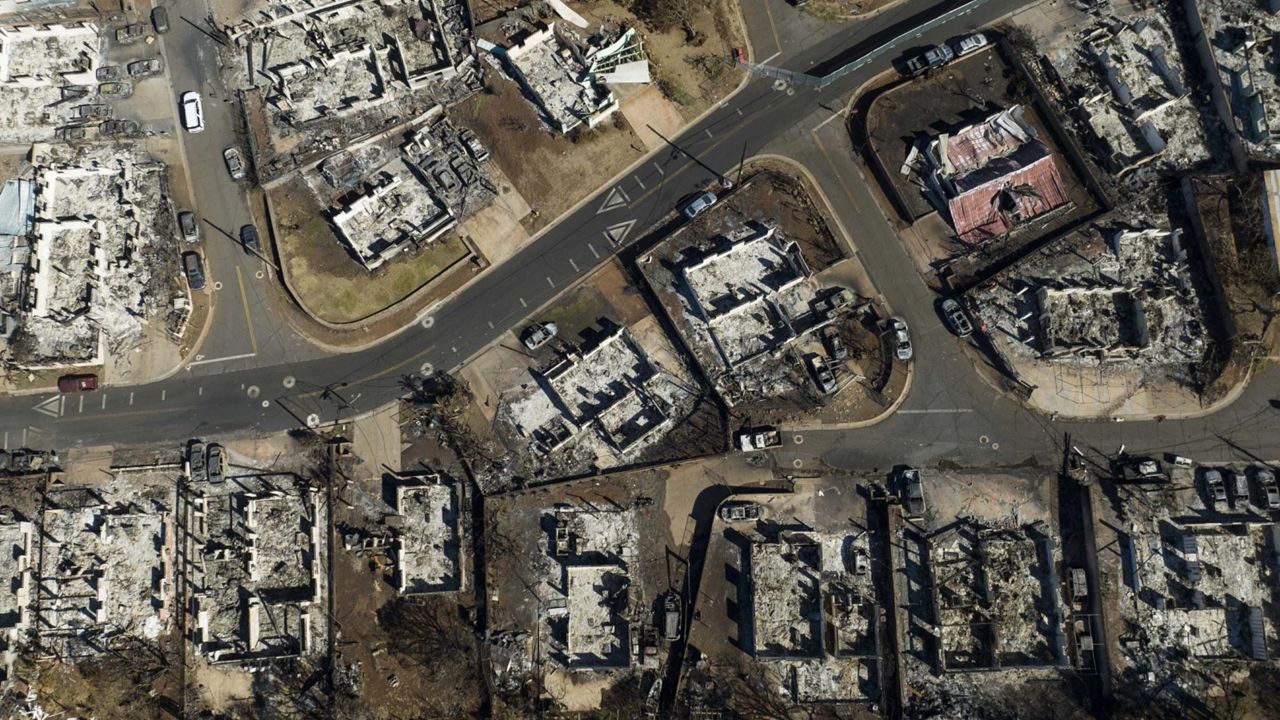LAHAINA, Hawaii — A new report from the University of Hawaii Economic Research Organization finds that households who lived, worked or owned businesses in West Maui and Kula at the time of the 2023 wildfires continue to struggle with housing costs and stability, economic recovery and access to resources.
“Poverty, unemployment, rent costs and housing stability have risen dramatically and these increases are persisting more than a year after the disaster,” the report, Maui Recovery Survey: Housing and Jobs, states. “This suggests that gaps in assistance are still widespread and disproportionately affect the most vulnerable population groups.”
The survey was conducted in August 2024 and includes responses from 402 individuals representing 374 households.
As the authors of the report note, their findings help to fill a “data gap” that exists because most existing data about those directly affected by the fires is held by federal and state agencies and is not publicly available, not updated on a frequent basis, not released in a timely manner and/or not shared between agencies. Participants in the ongoing survey were recruited by community and government agencies, including the Council for Native Hawaiian Advancement, the Maui Wildfire Exposure Study and the Maui Office of Economic Development. The survey questionnaire addresses key indicators, including income, employment, housing type, rent and residential job location.
The report paints a bleak picture of the state of housing for households from the affected areas.
On average, affected households are paying 43% more to rent units with the same or fewer bedrooms as their original residences. At least 14% of respondents said they now live in crowded conditions.
According to the report, the proportion of fire-affected households either living with family or friends or currently unhoused has nearly doubled since the wildfires.
Overall, 80% of West Maui respondents were displaced from their homes and nearly half had to leave West Maui. More than a third of those who worked or owned businesses in West Maui or Kula but lived elsewhere were also displaced from their homes following the disaster. Almost a third of households living outside West Maui said they plan to move back within the next year.
The survey data indicates that the economic impact of the wildfires has been similarly drastic.
Post-fire, nearly 20% of survey participants have seen their income drop by more than half and 29% of fire-affected households now live below the poverty line (compared to 14% before the fires), more than triple the county average for 2023.
The survey found that fire-impacted individuals have faced reduced job security, with many working fewer hours, earning less income or losing their jobs entirely.
Roughly 70% of participants who were employed in the tourism industry before the fires still have jobs in the industry; less than half of those were able to maintain full-time employment.
Respondents also reported significant unmet needs, including financial support (45%), housing assistance (30%) and adequate food (20%).
“Gaps in assistance persist,” the report stated. “Individuals who are not receiving government support are more likely to report unmet needs.”
Michael Tsai covers local and state politics for Spectrum News Hawaii. He can be reached at michael.tsai@charter.com.



